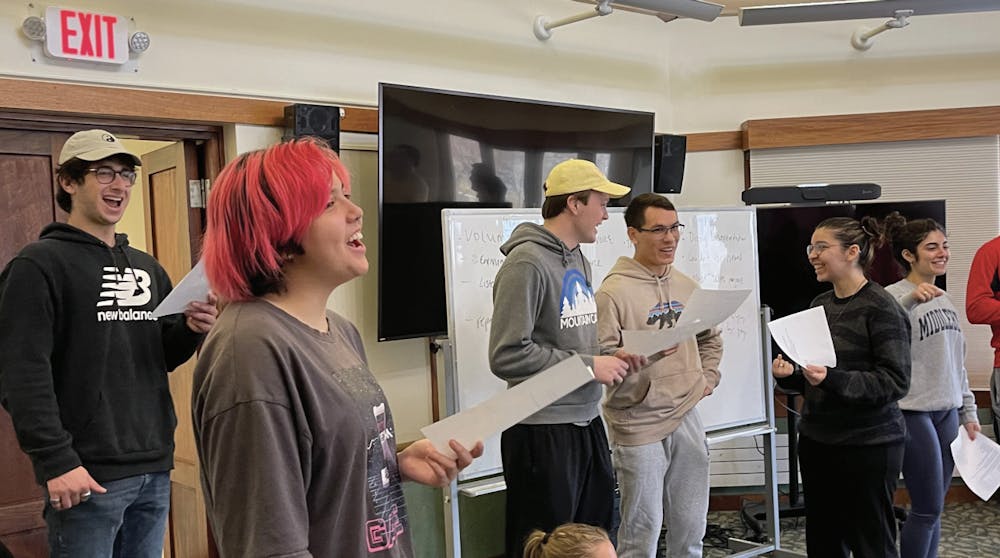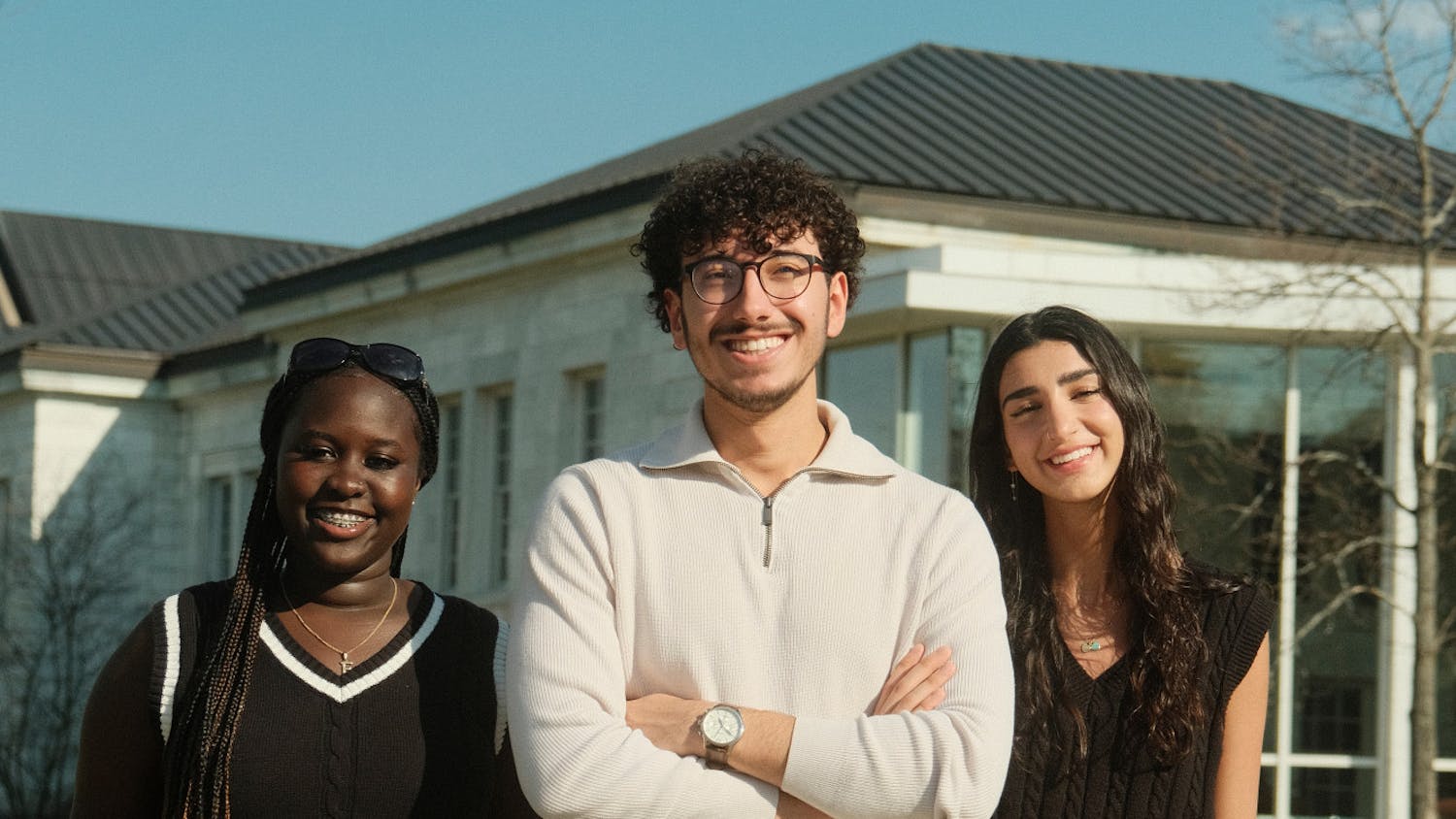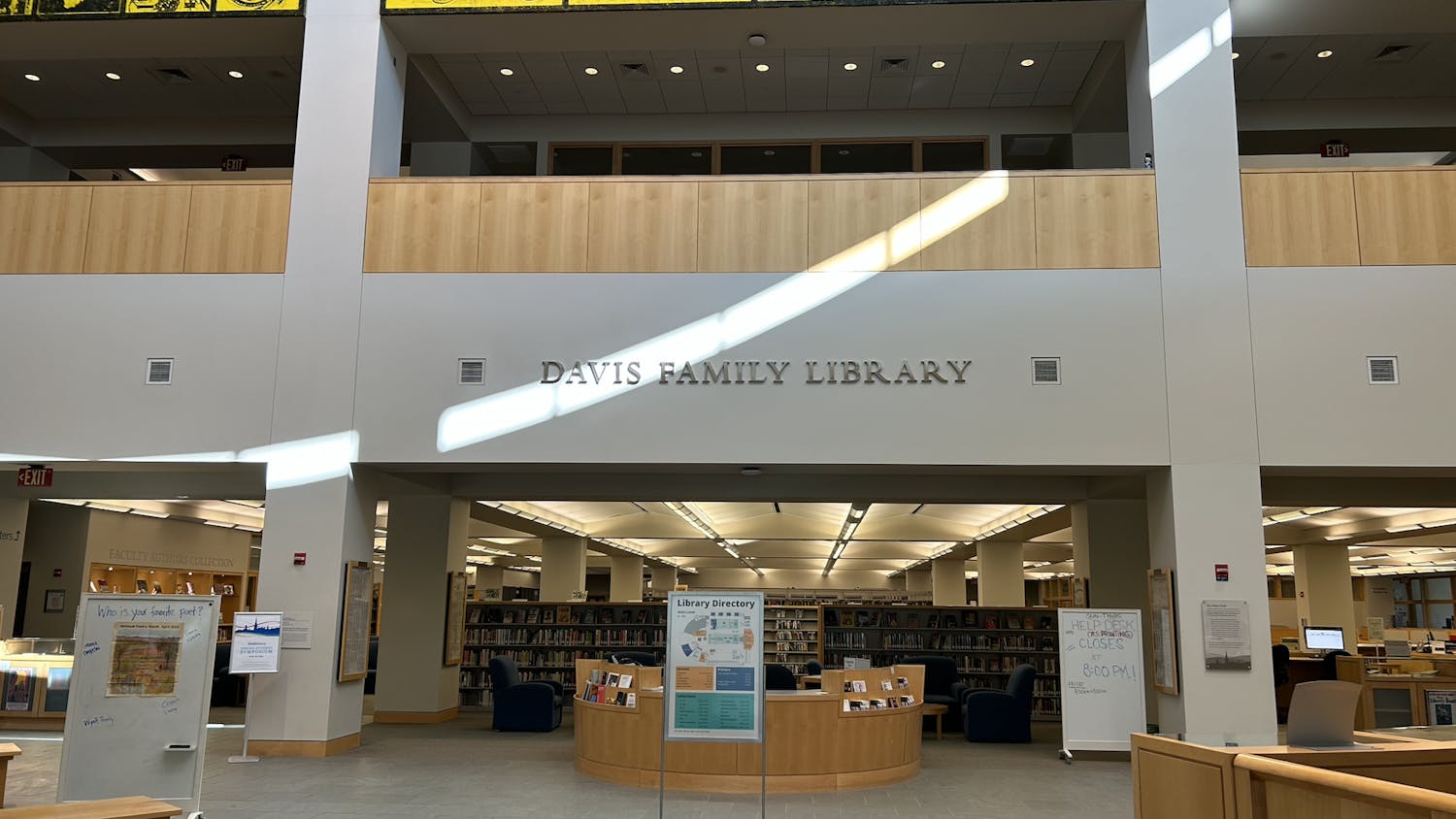Beyond the Page (BtP) is an innovative learning collective affiliated with the college that has completed one of its many on-campus residencies, which have evolved and broadened over the years since the last time The Campus visited them. The organization was born from a teaching practice that began close to 30 years ago at the Bread Loaf School of English, when the Bread Loaf Acting Ensemble began putting on a play at the end of the summer that spoke to what students had learned and discussed in the program that year. From there, the Ensemble began going into the classroom as teaching artists, encouraging students at the graduate school to engage with texts in new and more immersive ways.
Craig Maravich, current Director of BtP, was hired by Bread Loaf in 2010 to work with the Ensemble on cultivating this teaching practice. “It became really clear very quickly how important [BtP work] was, and how central it was, to how people learned at Breadloaf,” Maravich said.
Since 2010, BtP has expanded to work with all of the college — from undergraduate classes, to affiliated programs in Monterey and elsewhere. Over these past two weeks, the organization entered political science, gender studies, theater and literature classes, working with specific texts in each one.
I had the opportunity to sit in on BtP’s workshop in Associate Professor of Political Science Sebnem Gumuscu’s Politics of the Middle East and North Africa class. Upon entering the class, before introducing the text, BtP instructors gathered the class in a circle and asked everyone to close their eyes and begin breathing in unison — a practice that BtP regularly uses to ground students at the start of their workshops.
After a lengthy warm-up, which Program Assistant Madison Middleton ’22.5 later explained was inspired by theater warm-ups that encourage students to use their minds in new ways, the textual work began. Gumuscu’s class had been discussing the Israel-Palestine conflict, and with that in mind BtP worked with a poem that Gumuscu had chosen specifically to offer a way for students to contextualize their feelings about the material they had been learning.
The day before my visit to the classroom, the BtP teaching artists had split students into groups of varying sizes and given each group different excerpts of the poem. The only instruction given was to be the loudest in the room — and what came, inevitably, was an exhausting performance of nonsensical yelling. During the class, however, students read the poem in unison, slowly, allowing them to reflect on the day before and see the poem in a new light.
After reading together, students were asked to underline words that resonated with them most and come up with phrases or synonyms that came to mind. Then, as they read together in an almost chant-like manner, students began adding their phrases to the chorus. “Vulnerability” and “hope for the future,” were among the additions that were spoken into the poem, resulting in what students referred to as one of the most personal experiences in a political science class that they had ever had.
Beyond the Page is filling a unique role in the classroom of offering students avenues through which they can feel the material they are learning, even in disciplines which rarely ask students to include themselves in the narratives which they are studying.
“We are really interested in asking, how can we engage in the conflict in the world, large and small, in a creative way?” Middleton said.
Maravich took this idea one step further, reiterating the role that theater practices have in the classroom and pushing harder on BtP’s entire notion that questions the way we learn in the day-to-day.
“When we bring a theater practice into the classroom, we can no longer solely hide behind an intellectual way of thinking, or that disembodied disconnection from the material,” Maravich explained.
What was a practice that was met with visible resistance around the classroom, is a revolution of its own in the realm of education. BtP brings students into the material that they are learning. While it doesn’t ask them to be actors themselves, it asks them to do what actors must do in their day jobs: to feel what they are reading or acting out as if it is happening to them. So many of the classes we take do the opposite of this, asking us to pause our feelings or our ability to empathize in order to absorb what is often tragic material. It makes BtP’s disruption of the norm all the more jarring, but ultimately all the more valuable.
“When we create something as theater artists, that thing asks us to bring our whole selves — our whole imaginations, our whole sense of humor, our whole of what we value in the world, and you can’t really hide behind it,” Maravich reflected. “So when you suddenly infuse these practices in a space, it really invites people to bring their whole selves to the experience, such that it actually does matter how you feel about the material and what your opinions are — and to pretend that those things aren’t a part of the mix, or don’t need to be, is just false.”




